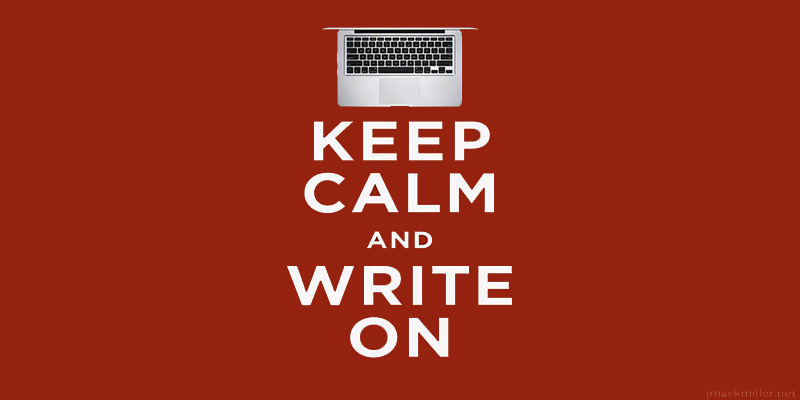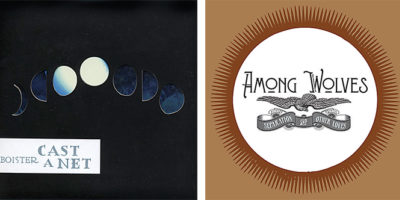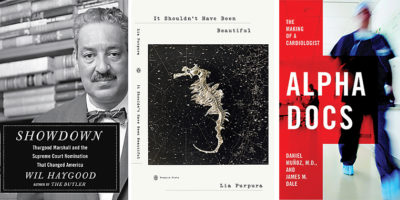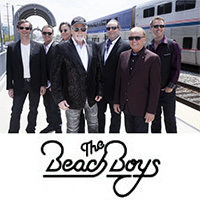Do you watch the Oscars?
My wife and I usually watch it. Unless I’m out of town. I usually hit the hay before it’s over.
It’s really, really long.
It runs into my bedtime. I hate it that they backload the important awards until the end, but I guess they have to.
Do you think the Oscars are relevant?
That’s a great question. Relevant to what? Relevant to the art of filmmaking as it’s understood globally? Not very. In terms of a popularity contest in Hollywood? Very relevant. You can sort of assess the trends Hollywood thinks are cool and the actors and directors that are considered hot and deserving by tracking it over the years. For example, Martin Scorsese never won for years and years, and then he finally got it for The Departed because they figured he was due; he’d been denied all those times.
And Steven Spielberg didn’t win for years, and then he won for Saving Private Ryan.
Hollywood is devoted to making money, right? That’s what it’s all about. They have always tried to balance that with creating a product that is not simply commercial, they hope, and this is an event where Hollywood gets to say, ‘Look, we’re doing serious art here!’
Well, in their endeavor to make some entertainment of substance, how do you think they did in 2013?
There were several quite well made and even stirring and moving films. I thought it was one of their better years, recently. Although, I have to say, the last three or four years, I didn’t really watch all the movies that were nominated. It’s an irony: When you teach film, you don’t have time to go to the movies. You watch the same movies over and over again for your class or you watch them at home or in your class, so I seldom get out. But! Because of this interview, I’ve been seeing a lot of movies in the last few weeks.
Which movies stand out for you this past year?
Well, I loved American Hustle. I liked the storytelling style David O. Russell has there. And I remember the ABSCAM scandal vaguely. And it brought back memories seeing those ’70s fashions. I thought Christian Bale’s performance was one of those kind of a stealth performances. He didn’t look great, but he completely lost himself in the role. I never thought, ‘Oh, here’s a Hollywood actor doing this.’ I thought it was really strong.
And, yeah, 12 Years a Slave is devastating. You leave the film speechless. Although, there are stereotype characters in all of them, like Michael Fassbender: He’s the evil slave-owner; that’s all he is. And there’s a foil there for him with the Benedict Cumberbatch character, the ‘nice’ slave owner. So, there’s some kind of schematic storytelling in that one, but Chiwetel Ejiofor, his performance is magnificent. All of the nuance he shows in his face? To me that’s the best actor. I think he’s going to win.
Do you? Because it seems like all the pre-Oscar awards have gone to Matthew McConaughey.
Yeah, that’s a Hollywood thing there. He’s played these stud roles or in B-romantic comedies, and he’s stretching. In the last year, he’s really stretching. He made a movie called Mud, Jeff Nichols’s second film, a real interesting performance there. And he lost all that weight [for Dallas Buyers Club] and he’s playing against type, so Hollywood may reward that. I think that Chiwetel Ejiofor deserves best actor, [but] the Academy seems to favor actors who gain or lose weight for roles. In that light, Matthew McConaughey and Jared Leto look like favorites for best actor and supporting actor.
It seems like the best actor race, in particular, was very strong this year. There were a lot of people who got left out, in particular Robert Redford.
And how about Tom Hanks?!
Right, and Tom Hanks! Those are two really big names to leave out. What does that say about this year’s crop of leading men?
Well, I think Tom Hanks got left out because Bruce Dern got nominated. Dern is one of those—he’s 77 years old—he came in that wave of great ’70s character actors; he often stole films in supporting roles. He’s kind of dropped off the map in the last 10 or 15 years, and this is kind of a comeback. And Alexander Payne, the director of Nebraska, is well regarded in Hollywood, so [Dern] had to be nominated. So there was no room for Tom Hanks. I don’t know what happened with Redford. Maybe Dern edged out Redford, actually, because they’ve got the two older guys there. They can only get one grandpa.
What about the ladies this year? There’s Amy Adams in American Hustle, Sandra Bullock in Gravity, Cate Blanchett in Blue Jasmine, Meryl Streep in August: Osage County, and Judi Dench in Philomena.
Cate Blanchett won for The Aviator years ago. She was doing an impersonation of Katharine Hepburn. I didn’t particularly like that. People can watch five Katharine Hepburn movies, and you can do that. And Sandra Bullock is kind of a one-woman show there. I mean, Clooney, he’s in the picture for the first half, maybe. And she has a lot of talking to herself going on there. I think there’s a good chance she’ll win because everyone was so impressed by all the hardship she had to endure during the shoot. And she had to act with no foil. A lot of times Hollywood rewards that. I really liked Amy Adams’s performance. The movie is great because you don’t know who is scamming whom here. Was she really still in love with [Christian Bale’s] character? Was she really falling for Bradley Cooper’s character? You weren’t really sure. And maybe she wasn’t really sure either. So she was going to play both ends against the middle and go with the winner, I think. And so that kind of deceptive look that she had in her eye, the things that passed across her face, I thought it was really impressive. Now, Cate Blanchett, I’m sorry, but I thought her performance was very mannered in Blue Jasmine. The voice and everything. I don’t think the movie is very good, and she suffered from a poor script there. Talk about stereotype characters there, wow. We’ve got the noble blue-collar guy, the nasty Bernie Madoff character that Alec Baldwin played. If Alec Baldwin fell asleep and woke up, he could play that character. It didn’t involve any direction for him.
No. Probably not.
But you shouldn’t punish the actors because of the movie. I think Woody [Allen] makes too many movies, and he doesn’t think it through. My vote would be for Amy Adams, but I wouldn’t be surprised if Sandra Bullock got it. I don’t think Meryl’s going to win this year. And Judi Dench? She’s won before, so probably not.
Do you think the recently resurfaced child molestation accusations against Woody Allen will hurt Cate Blanchett’s Oscar chances? She’s widely considered the favorite in the Best Actress race—or at least, she was.
Interesting question. I doubt the allegations will hurt Blanchett, though. She's likely to be seen, even by those who believe the allegations, as an innocent victim. My guess is that, if anything, voters bend over backward to be fair to her.
One of the things people were excited about was the potential for the 2013 nominees to be the most diverse group in Oscar history. That didn’t quite come to fruition but there are more people of color represented than there used to be. What are your thoughts on Oscar diversity this year and in general?
I think the Academy Awards still suffer from tokenism. They consider if they have one African-American or, you know, somebody from some unusual place, then they’re covered. But I would congratulate them on Barkhed Abdi’s nomination. That was from left field, completely. He hasn’t acted before. He’s a funny-looking fella. He doesn’t have a Hollywood look, that’s for sure. That was a very strong performance in a movie where he was the villain and he had to add some shading to that. But you know, Hollywood is filled with good lefties so they do their best, but until there are more complicated roles for—not just African Americans but also, say, people with disabilities and so forth—they’re still going to continue to suffer from tokenism.
You’ve got Lupita Nyong’o for best actress in a supporting role and one African-American in Supporting Actor and one Anglo-African for a Leading Actor and that’s par for the course for the last several years, isn’t it?
Yeah, it’s about what they usually manage.
But you could argue too—and this is what Spike Lee always says—it’s really difficult for an African-American director to get films financed unless they’re thrillers or unless they’re genre pictures, and they’re not going to get nominated unless they follow Hollywood: Go there and shake a lot of hands, get a lot of press. I don’t know if he’s right or not. Spike’s kind of a provocateur so . . .
Speaking of shaking hands and kissing babies, the behind-the-scenes campaigning seems so prominent now—or maybe it’s just that the public is more aware of it now. Thoughts?
I think we know more. If you read about the history of Hollywood, it always went on, but it was a different industry then. You had agents doing so much more of the work, and it was not known by the public. For example, all of the gay actors—they were open secrets in Hollywood. Everyone knew, but the general public didn’t have a clue. So, those kinds of things wouldn’t happen now. So I think it’s just more out in the open. They lobbied for their awards. They lobbied for their roles, and so forth. It is more blatant now, and I think probably a little more energetic, but I think probably it’s just that the general public knows more about it now. There’s no such thing as privacy these days, and that applies there also.
Your recent book, Nightmare Alley: Film Noir and the American Dream deals with the American Dream, and while none of the best picture nominees are classic noirs, many of them do deal with the American Dream in various ways. What are your thoughts on that as a theme that unites these disparate pictures?
The Wolf of Wall Street is about the perversion of the American Dream. Blue Jasmine, again, you’ve got the perversion of the idea that you rise by your bootstraps, and you make a lot of money, and you do an honorable business, and you rise and become wealthy. But, in that one, Alec Baldwin’s character rips people off, and then you have the contrast between the upper-class lady played by Cate Blanchett who doesn’t know how to do anything and her sister, Sally Hawkins, very blue-collar. So you can see the class theme very strongly in that.
You could argue that American Hustle, these guys want to get something for nothing. They’re operators, they’re entrepreneurs. That’s very noirish, actually. The idea that we don’t know who is really faking and who is not and that someone will get in over his head completely, like Bradley Cooper’s character who thinks he’s in charge but actually isn’t, those are all noirish. In Nebraska, you know, [the character] Woody wants to go get his million dollars. The dream of getting rich. The backstory is he’s had a disappointed life. Something happened to him in Korea, and he’s never been the same since. This is a chance to redeem himself and leave something for his adult children, so that certainly applies there. And again, 12 Years a Slave is about how what we think of as the American Dream covers up a history of slavery and violence and exploitation. So, I think it still applies.
It seems like there’s still plenty of material to be mined from the disparity between the idea of the American Dream and the reality of the American Dream.
Yeah, I try to argue in the book that these people are all buying into this ideology and they find out that’s it’s either vacant or they made one mistake and that was it.
It’s unforgiving.
That’s right.
Any other snubs or omissions?
Many people were expecting the Coen Brothers’ Inside Llewyn Davis to get many more nominations than it did. It kind of got shut out there.
How do you account for that?
I think it’s a hard movie to like. The main character, Llewyn, is kind of a jerk. And, speaking of the American Dream, it doesn’t have the right story arc. He doesn’t succeed by hard work and then become famous. He just kind of goes in a circle. There was a guy at the theater with me, and it was very funny. He got up at the end, and he’s getting past me in the narrow aisle there, and he stopped. His face was like three inches from my face and he was like, ‘What was that story about anyway?’ I think a lot of people got to the end and went, ‘Huh?’ So I think it got shut out because of that. But I have to say that Oscar Isaac was riveting. A really wonderful performance even though the character is not very likable. You wanted to look at him, and that’s what a good actor does.
Well, he’ll probably get rewarded with more work, which is, in many ways, better than winning an Oscar.
Oh I think so, too. The idea is that once you get an Oscar your career is made but there are a lot of people who win an Oscar, and then they don’t get work for three years.
Again, it’s not the American Dream that people think it is.
Yeah. People say, ‘Oh, he’s going to cost too much now,’ so they won’t hire him, or ‘He’s too associated with this particular role.’ It can be a double-edged sword.
























